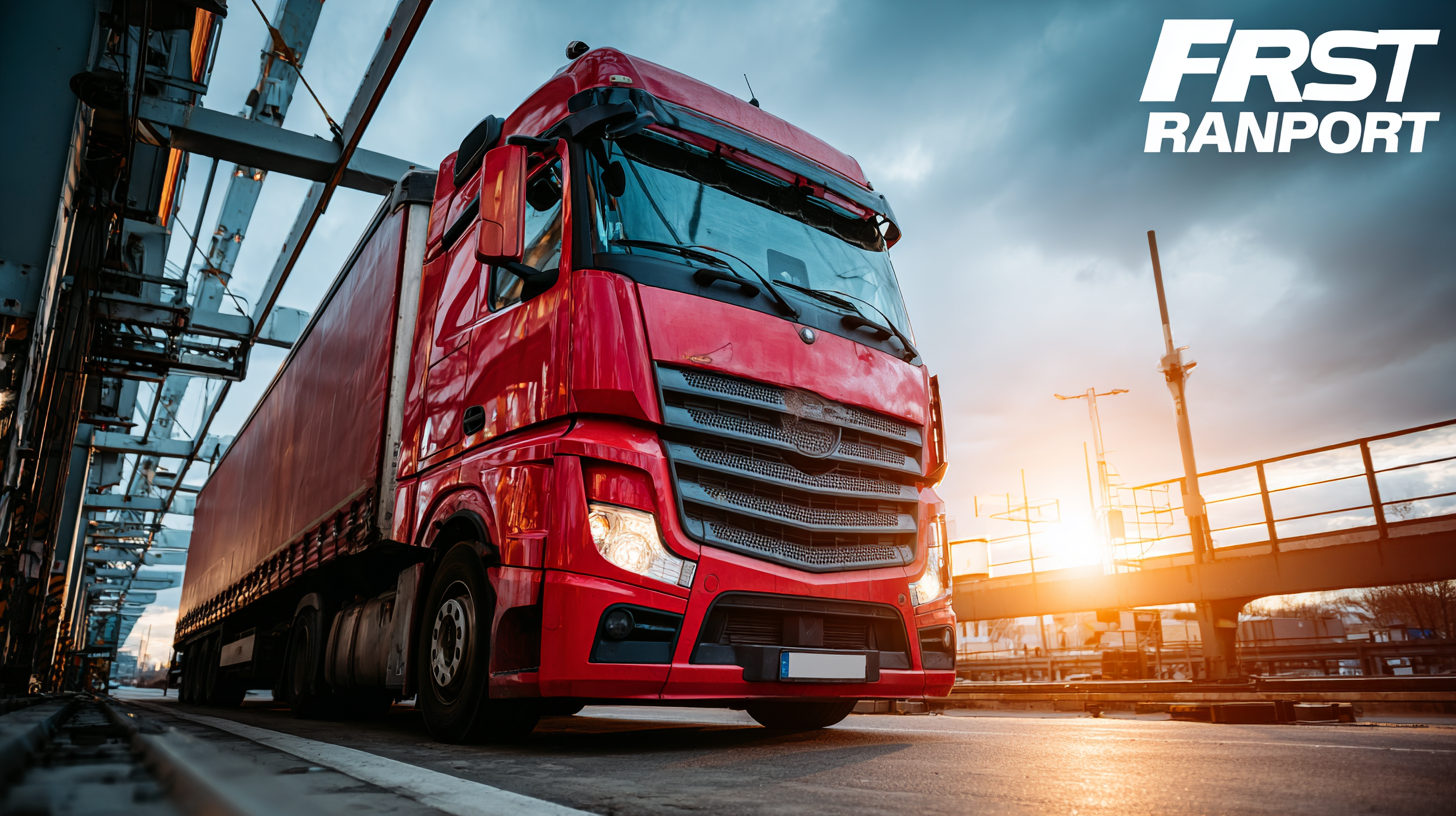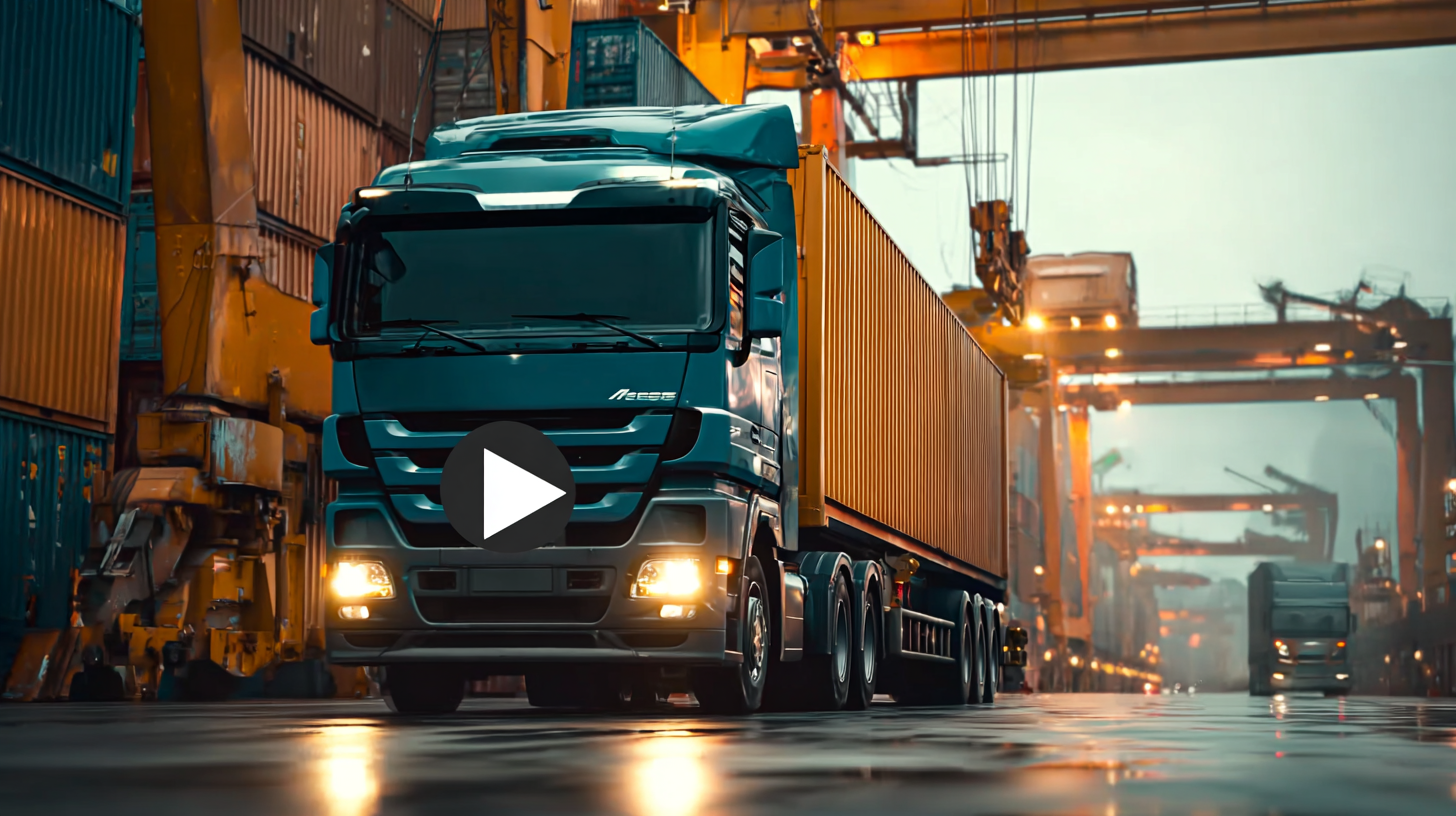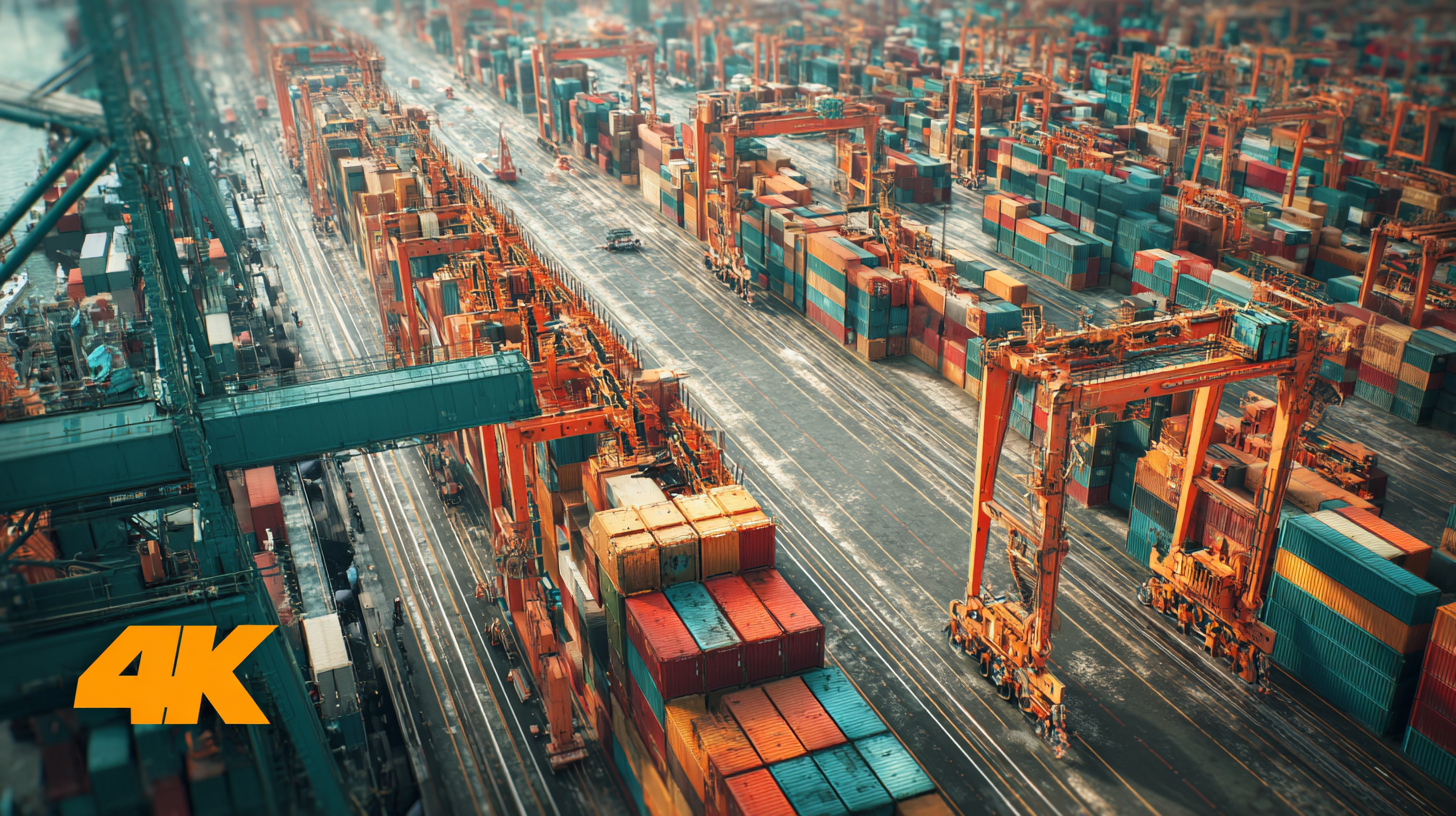In an increasingly complex global marketplace, efficient freight transport solutions are crucial for maintaining competitive supply chains. According to a report by the Council of Supply Chain Management Professionals, nearly 75% of logistics professionals rank transportation as their most significant supply chain challenge. This underscores the vital role of freight transport in ensuring timely delivery, reducing costs, and enhancing overall operational efficiency. As customer expectations rise and market demands fluctuate, businesses must navigate a myriad of challenges—including fluctuating fuel prices, evolving regulations, and the need for sustainability—while seeking innovative solutions that streamline their freight transport processes. By leveraging advanced technologies and strategic partnerships, companies can optimize their logistics performance and create resilient supply chains capable of meeting the demands of today’s economy.

In today's fast-paced global economy, the efficiency of supply chains hinges significantly on the selection of the right freight transport mode. Businesses face a myriad of options, from road and rail to air and sea, each with its own advantages and disadvantages. For instance, air freight offers speed, making it ideal for time-sensitive deliveries, while ocean freight presents a cost-effective solution for bulk shipments. Understanding the unique demands of each shipment is crucial in optimizing logistics and ensuring timely distribution to meet customer expectations.
Furthermore, the implications of freight mode selection extend beyond mere transportation costs; it influences inventory management and overall supply chain resilience. Choosing a slower transport method might save money but could result in longer lead times, affecting a company's ability to respond to market changes swiftly. Conversely, selecting a faster option can enhance responsiveness but at a higher cost.
Therefore, a thorough analysis of factors such as shipment size, destination, urgency, and budget is vital for organizations striving to refine their supply chain operations. By aligning transport choices with strategic business goals, companies can significantly enhance their supply chain efficiency and maintain a competitive edge in the market.
In today's competitive market, integrating technology into freight transport solutions is not just beneficial but essential for enhancing supply chain efficiency. According to a report by Gartner, 79% of supply chain leaders believe that technology is a crucial enabler in maintaining industry competitiveness. This integration allows for real-time tracking of shipments, predictive analytics, and improved communication, which collectively reduce delays and enhance operational transparency.
Moreover, a study by McKinsey indicates that digitizing logistics operations can lead to a 15-25% reduction in transportation costs. Technologies such as IoT and blockchain provide supply chain stakeholders with the ability to streamline processes, reduce errors, and optimize route planning. This not only accelerates delivery times but also improves inventory management, leading to a more resilient and responsive supply chain. As industries continue to evolve, those who embrace these technological advancements will undoubtedly set themselves apart in their freight transport strategies.
 The freight transport industry is undergoing a significant transformation driven by digitalization, which is reshaping supply chain efficiencies. One of the most notable trends is the adoption of advanced technologies such as Internet of Things (IoT) devices and blockchain. These tools enable real-time tracking of shipments, providing logistics managers with actionable insights into their operations. With enhanced visibility, companies can swiftly respond to disruptions, rerouting shipments and managing inventory levels more effectively.
The freight transport industry is undergoing a significant transformation driven by digitalization, which is reshaping supply chain efficiencies. One of the most notable trends is the adoption of advanced technologies such as Internet of Things (IoT) devices and blockchain. These tools enable real-time tracking of shipments, providing logistics managers with actionable insights into their operations. With enhanced visibility, companies can swiftly respond to disruptions, rerouting shipments and managing inventory levels more effectively.
Moreover, digital platforms are facilitating better communication among stakeholders, from suppliers to carriers and customers. By streamlining information flows, organizations can reduce delays, minimize errors, and increase collaboration. Additionally, the use of data analytics is empowering companies to forecast demand accurately, optimize routes, and ultimately drive down costs. As the industry continues to embrace these digital trends, freight transport solutions are becoming more efficient, reliable, and adaptable to the ever-changing market landscape.
Efficient freight transport solutions are crucial for businesses looking to optimize their supply chain and reduce costs. According to a report by the Council of Supply Chain Management Professionals (CSCMP), transportation costs can account for up to 60% of total supply chain expenditures. By implementing streamlined transportation strategies, businesses can significantly decrease these expenses. For instance, adopting intermodal transportation can reduce costs by 20-25% compared to traditional trucking alone, demonstrating the potential savings in high-volume scenarios.
Moreover, technology plays a pivotal role in enhancing freight transport efficiency. A study from McKinsey & Company indicates that the use of advanced analytics and real-time tracking can lead to a reduction in logistics costs by as much as 15%. By leveraging these technologies, companies can optimize routes, reduce fuel consumption, and ultimately save money. Additionally, consolidating shipments not only lowers transport costs but also minimizes carbon footprints, aligning with growing sustainability goals in the logistics industry. Thus, investing in efficient freight transport solutions not only leads to financial savings but also bolsters overall supply chain resilience.

In today's rapidly evolving supply chain landscape, companies are leveraging innovative freight transport strategies to navigate ongoing challenges. Focusing on real-world applications of artificial intelligence, we delve into case studies that showcase how businesses are transforming their operations. For example, a key player in freight logistics integrated AI algorithms to optimize routing and reduce delivery times. This not only enhanced efficiency but also significantly cut operational costs, demonstrating the tangible benefits of technology in supply chains.
The container trucking sector has faced a rocky start in 2023 due to decreased foreign demand and a decline in orders. Amid these challenges, private trucking companies are seeking ways to remain competitive. By employing advanced freight solutions, such as data analytics and machine learning, these firms can better anticipate market fluctuations and streamline their operations. This adaptability is crucial for success in an increasingly competitive environment, proving that innovative freight transport strategies are essential for businesses aiming to thrive despite market pressures.
This chart represents the cost per ton for various freight transport methods. Understanding these costs is essential for optimizing supply chain strategies and improving overall efficiency.






